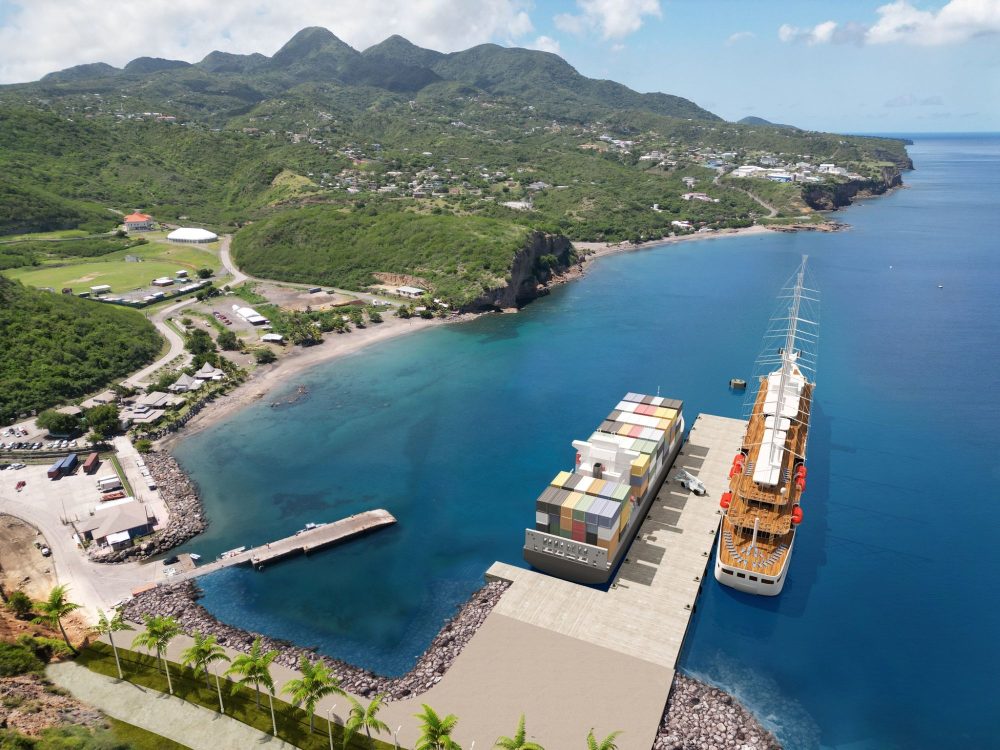
BRADES, Montserrat – Never before has technology been so important to the people of the Emerald Isle of the Caribbean, Montserrat. Since volcanic eruptions began in July of 1995, radio, telephone and now the internet have become essential tools for communicating with friends and family around the world.
Between 1995 and 2000, Montserrat lost access to two-thirds of its land mass and with that, came the emigration of more than half of its 12,000 residents to the United Kingdom, Canada, the United States, neighbouring Antigua and other Caribbean islands.
Fast forward to 2012 and Facebook is the social media tool of choice to stay connected. Fan pages like the Spirit of Montserrat, run by the government’s media department, My Montserrat which celebrates the island’s culture and beauty and now Vintage Montserrat, a group where people can share old images of lost locations and forgotten faces abound.
The group was started in January 2012 by a woman who uses her dog’s name Sally Doria as her online identity. She began with a photo of carnival from 1967 and it immediately drew viewers and discussions about the disparity in the design, detail and quality of the work missing from today’s festivals.
New photos are posted daily and as the group comprises of both the old and young, Vintage Montserrat has become an important way to recount historic moments and family memories, look at clothing and motorcars from years gone and generate discussion about where we are going and what old ideas can be regenerated for a new time.
Montserrat celebrates its 50th Cultural Festival this December and so the many images of costumes in Sturge Park, street parades down Parliament Street in Plymouth are quite timely but poignant. Vintage Montserrat is an online museum of sorts, and is helping to build the archives of available content on the island’s cultural and natural history.
“My first trip was Christmas 1966. I was eight years old and Montserrat holds my best family memories. For my dad, it was truly heaven on earth and he was right!” Doria recalls.
“What a treasure of photos,” remarks Bernadette Irish, a former teacher who now resides in the UK.
“A lot of nostalgia and great sadness for so much lost under all of that ash,” replies Sally Doria, who credits her father as the photographer of many of the images she posts.
“Montserrat my homeland means the world to me,” Irish said during a Facebook interview. “I don’t physically reside there at present but that’s where my heart lives. Seeing the pictures in the Vintage Montserrat group evokes memories of a past that is present and real for me. The Montserrat I know is often encapsulated in the photos posted, not-withstanding that they span different eras in Montserrat’s history.”
“Wow you’ve struck gold,” comments Danny Joseph on a photo of the old jetty, before Marine Drive was filled in and built in Plymouth.
Joseph, who was born in 1979 in Harris Village, finds priceless treasures in viewing the photos. “The value I see in those images is that with the absence of a movie, the most powerful medium we have to connect to previous eras is photography. It is one thing to imagine life then based on stories from an older generation, but it’s on another level when you can ‘see’ for yourself what it was like. It informs, aligns, corrects, and fills in gaps in theory derived from second hand information.”
“What a human life ultimately is in some ways is a story. Seeing those images with people and locations makes one think of the stories of their lives that we’ll never know or will eventually be forgotten about,” adds Joseph who is a partner in the island’s first software development firm Lavabits and a teacher at the Montserrat Secondary School.
The stories are told through the images and the comments that follow. Edwin Martin posts a photo of the old Shamrock cinema which was destroyed along with the capital Plymouth and everyone begins to comment on the old Chinese movies they watched, remembering the floor covered in peanut shells and who they didn’t want to sit beside.
Martin, a sports writer for the Miami Herald and island native says he was stunned to see well-preserved colour photographs that were shot even before he was born and looked like they could have been shot last week. “The photos give a fascinating perspective of what Montserrat was like in the 1960s and 1970s.”
Old photos of the W.H. Bramble Airport, which was completely submerged under pyroclastic flows in 2010, jolt memories for non-nationals and their feelings of seeing the departure sign which meant the time had come to leave Montserrat after a long holiday.
Joseph says the photographs themselves tell a story about the social construct of the photographer and the way they experienced the island. “Everything that you see within the snap shot has been socially, culturally, economically constructed. So seeing the photos give thought to the circumstances that made everything in those photos ‘be what they were’ at that point in time. What influenced clothing, transportation, diet, entertainment, land development, housing, music, viewpoint on life? The interplay between those factors is what composes the photos and so it’s interesting trying to extract those context-constructing elements from the photos that I see.”
“It’s uniquely interesting in that there’s a chronological connection to the events, more so than one than is 200-300 years ago. Some of the people are still alive, some of the buildings still exist, the locales are still there (many now inaccessible). So the past ‘is not that far removed’. You were not in existence during those years but you are still part of it, part of their story.”
“I love my country and it’s great at times to peer at photos to try and recognise faces or to pinpoint areas of Montserrat that are not that obvious. Now in retrospect I realise that though it’s claimed Montserrat was small and even smaller now there are so many places that I’d never been to, Paradise, Elberton, and many more. Kudos to the creator of Vintage Montserrat and keep the photos coming and long life to this group,” Irish adds.
Martin plans to continue making his own contributions of old photographs to the group. “I added a few images from my personal archive to augment the photos that were already posted. My hope is that younger generation Montserratians view the photos and appreciate our culture in order to carry on some of our most cherished traditions. I am a firm believer that we must do a better job of preserving photos, records, etc., so future generations have a clear understanding of what came before them.”
Vintage Montserrat is an open group on Facebook and everyone is asked to limit their photos to pre-volcano days. It is one of the many ways that we are creating a Virtual Montserrat.
Discover more from Discover Montserrat
Subscribe to get the latest posts sent to your email.






